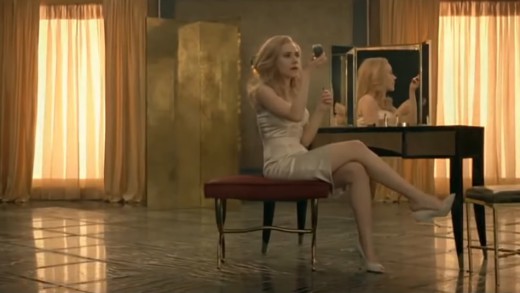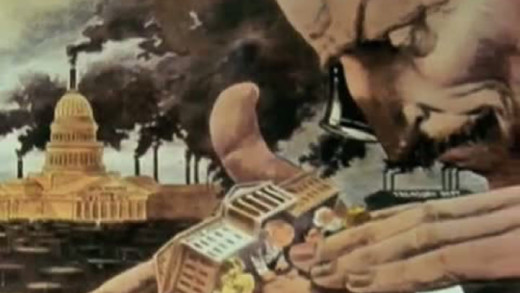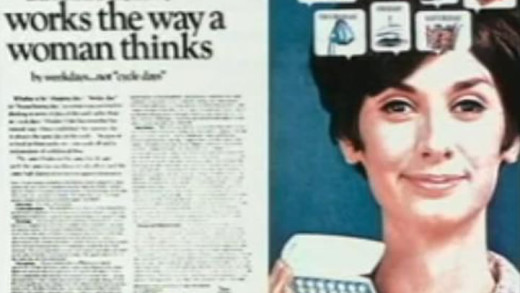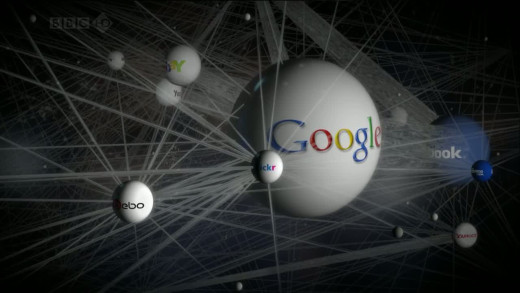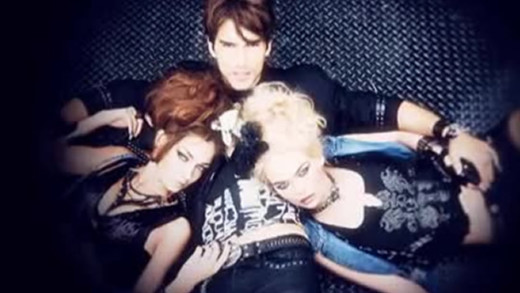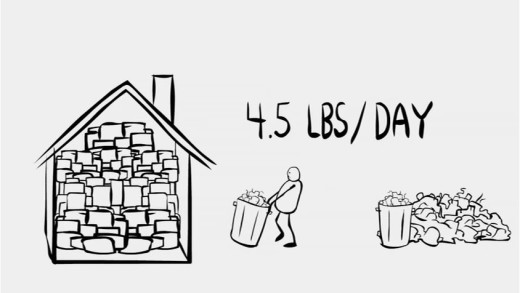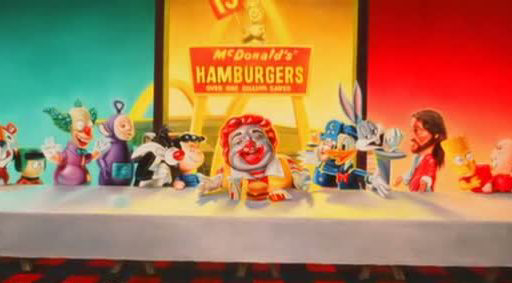The Society of the Spectacle is a film based on the 1967 book of the same name by French political theorist and philosopher, Guy Debord. The work traces the development of modern society, in which Debord argues that authentic social life has been replaced with representations, and that the history of social life can be understood as "the decline of being into having, and having into merely appearing." This emerges from and gives rise to a pervasive and all encompassing spectacle in which relations between commodities have supplanted relations between people, in which "passive identification with the spectacle supplants genuine activity." The film weaves the text of the original book with modern-day imagery, illustrating many elements of the spectacle, including that "the spectacle is not a collection of images, rather, it is a social relation among people, mediated by images." This makes the material hard to decipher at times, especially with conflicting subtitles between languages: but this is part of Debord's goal, to "problematise reception" and force the viewer to be active rather than passive. In addition, the words of some of the authors are "détourned" (hijacked) through deliberate misquoting. The result is a foundational work on the concept of the spectacle and its characteristics, to encourage critical thinking, to build and extrapolate critiques to apply to the wider social scale.
Obey
Obey is a video essay based on the book "Death of the Liberal Class" by author and journalist Chris Hedges. The film charts the rise of corporatocracy and examines the trending possible futures of obedience in a world of unfettered capitalism, globalisation, staggering inequality and environmental crisis -- posing the question, do we resist or obey?
Esc & Ctrl
Esc & Ctrl is an online series of short documentary films where journalist and filmmaker Jon Ronson explores some aspects of screen culture and the Internet. By exemplifying the concepts of control of information and the screen culture's reactions to publishing, censorship, viral videos, media attention and manipulation; a small set of stories weave together to pose bigger questions around democracy and open communication in the age of the computers and a corporately mediated virtual world.
Over the past three decades, obesity rates in the United States have more than doubled for children and tripled for adolescents, and a startling 70% of adults are now obese or overweight. The result has been a widening epidemic of obesity-related health problems. But while discussions about this crisis tend to focus solely on the need for individual responsibility and more exercise, Feeding Frenzy turns its focus squarely on the responsibility of the processed food industry and the outmoded government policies it benefits from. It lays bare how government subsidies designed to feed the hungry during the Great Depression have enabled the food industry to flood the market with a rising tide of cheap, addictive, high calorie food products, and offers an engrossing look at the tactics of the multi billion-dollar advertising industry that makes sure that everyone keeps consuming.
Admit it--you don't really read the endless pages of terms and conditions connected to every website you visit or phone call that you make do you? Of course not. But every day billion-dollar corporations are learning more about your interests, your friends and family, your finances, and your secrets--precisely because of this; and are not only selling the information to the highest bidder, but freely sharing it with the government. And you agreed to all of it. With plenty of recent real-world examples, Terms And Conditions May Apply covers just a little of what governments and corporations are legally taking from Internet users every day--turning the future of both privacy and civil liberties into serious question. From whistleblowers and investigative journalists to zombie fan clubs and Egyptian dissidents, this film demonstrates how all of us online have incrementally opted-in to a real-time surveillance state, click by click.
The huge and complex problems of today often instil doubt and fear that everything is futile. Yet by analysing how the power of media, schooling and parenting have moulded us, #ReGENERATION helps us start to comprehend what we must change—both as a generation and as a culture. We see how the average family spends at least four hours a day in front of the TV. Internet and video games are not included in this figure. So guess what is shaping us? This film examines the corporate forces that deeply influence all of us, but particularly the young, providing insights into how the politics of apathy is perpetuated, and how we can turn this around into activism, if and when we are willing.
Girl Model offers a glimpse into the hall of mirrors that is the modelling world as it interfaces with other industries and other countries. The film follows Ashley—a deeply ambivalent former-model who is now a scout and scours the Siberian countryside looking for 'fresh faces' to send to the Japanese market; and one of her 'discoveries,' Nadya, a thirteen year-old plucked from the Siberian countryside and dropped into the centre of Tokyo with promises of a profitable career. What entails is the opening of a can of worms that isn't easily solved in one sitting—a thriving and curiously sinister modelling industry that spans the globe, luring everywhere with pretences of wonder, success and riches. But the realities are harsh. The fashion industry can look glamorous from the outside, but its insides are, at the very least, deceptive and sinister; and the myths run deeply entrenched in the culture, constantly promulgating new, young recruits. This 'meat market,' a prelude to sex trafficking, is creepy, ugly, and preys on the young and vulnerable. Can the spell be broken?
My Public Space is a short film following a local artist in New York City, documenting the effort to reformat the visual pollution of advertising into public artwork spaces...
The Bro Code unpacks and takes aim at the forces of masculinity that condition boys and men to fundamentally dehumanise and disrespect women. The film breaks down a range of contemporary media forms that are saturated with sexism—movies and music videos that glamorise misogyny, pornography that trades in the brutalisation and commodification of women, comedy routines that make light of sexual assault, and a slate of men's magazines and TV shows that propagate myths of what it means to be a man in this culture: that it's not only normal, but "cool" for boys and men to control and humiliate women. There's nothing natural or inevitable about this mentality. And it's extremely harmful in the real world. By setting the myths against reality, The Bro Code challenges young people to step up and fight back against this culture, to reject the fundamental idea that being a 'real man' means disrespecting women.
Psywar
Psywar explores the history and evolution of propaganda along with the rise of 'public relations' with an emphasis on the relationship between war, propaganda and privilege...
The infertility industry in the United States has grown to a multi-billion dollar business, and its main commodity is human eggs. Young women all over the world are bombarded by advertising--on college campus bulletin boards, social media, online classifieds--offering up to $100,000 for their donated eggs, to "help make someone's dream come true." But who is this egg donor? Is she treated justly? What are the implications to her health? Eggsploitation spotlights the booming business of human-egg extraction told through the stories of women who became involved and whose lives have changed forever after undergoing the procedure. Their accounts provide a cautionary tale to all women who are considering egg donation for the purpose of in-vitro fertilisation or embryonic stem cell research.
Are we willfully trashing the planet in the pursuit of endless things? What's the source of the frenetic consumer energy and desire? In a fast-paced tour of the ecological and psychological terrain of consumer culture, Shop 'Til You Drop challenges the viewer to confront these questions head-on. Taking aim at the high-stress, high-octane pace of materialism, the film moves beneath the seductive surfaces of the commercial world to show how the other side of consumerism is depletion--the slow, steady erosion of not only the natural world, but basic human and community values. Shop 'Til You Drop contextualises the turbulence of this moment, providing an unflinching critique of the limits of consumerism and the so-called "pursuit of happiness."
Author and activist Jean Kilbourne analyses the depiction of women in advertising and media by decoding a large array of print and television ads. What is revealed is a torrent of stereotypes; sexist and misogynistic images and messages; laying bare a world of frighteningly thin women in positions of subservience; collectively, the restrictive code of femininity that works to undermine girls and women in the real world. By examining these messages, Killing Us Softly asks us to take advertising seriously, and to think critically about its relationship to sexism, eating disorders, violence against women, popular culture, and contemporary politics.
20 years on from the invention of the World Wide Web, The Virtual Revolution explores how the Internet is reshaping almost every aspect of our lives. But what is really going on behind this reshaping? The inventor of the Web, Tim Berners-Lee, believed his invention would remain an open frontier that nobody could own, and that it would take power from the few and give it to the many. So how do these utopian claims stand up to today?
How do our families influence our relationship with our own bodies? How does popular culture's standards of beauty get inside our hearts and heads? In what ways can sport and the drive for fitness actually make us sick rather than healthy? In Beauty Mark, former champion triathlete Diane Israel examines this culture's unhealthy fixation on thinness, beauty, and physical perfection. She talks candidly about her own struggle with eating disorders and obsessive exercising, confronting her own past to come to terms with this culture's unhealthy fixation on self-destructive ideals of beauty and competitiveness.
Filmmaker Darryl Roberts goes on a five year journey to examine this culture's burgeoning obsession with physical beauty and perfection, showing how increasingly unattainable images contribute to the rise in low self-esteem, body dismorphia, and eating disorders for young women and girls who also happen to be the beauty industry's largest consumers. In almost 40,000 media messages a year, young people are being told that unless you look like supermodels and rock stars, you're not good enough for anyone. In 2004 alone, people across the United States spent $12.4 billion on cosmetic surgery. America the Beautiful explores why these people are spending so much money to cover up their discontent that is mainly driven by advertising. What are the true costs of this culture's obsession with youth, plastic notions of beauty, and impossibly slender physiques? Who actually benefits from this high-priced journey towards a fake ideal, and does it justify an entire nation's psychosis?
Arguing that advertising not only sells things, but also ideas about the world, The Codes of Gender examines the commercial culture's inability to let go of reactionary gender representations. Presenter Sut Jhally's starting point is the breakthrough work of the late sociologist Erving Goffman, whose 1959 book The Presentation of the Self in Everyday Life prefigured the growing field of performance studies. Jhally applies Goffman's analysis of the body in print advertising to hundreds of print ads today, uncovering an astonishing pattern of regressive and destructive gender codes. By looking beyond advertising as a medium that simply sells products, and beyond analyses of gender that tend to focus on either biology or objectification, The Codes of Gender offers important insights into the social construction of masculinity and femininity, the relationship between gender and power, and the everyday performance of cultural norms.
Presented by author and activist Naomi Wolf, The Beauty Myth explores the phenomenon of how the social power and prominence of women has increased in the past few decades, alongside a paradoxical increase in the pressure they feel to adhere to unrealistic social standards of physical beauty, appearance and presentation. It seems the more legal and material hindrances women have broken through, the more strictly and heavily and cruelly images of female beauty have come to weigh upon us. Women have breached the power structure, but meanwhile eating disorders have risen exponentially and cosmetic surgery has become a fastest-growing specialty. Pornography has become the main media category--ahead of legitimate films and records combined--and thirty-three thousand American women told researchers that they would rather lose ten to fifteen pounds than achieve any other goal. How did this come to be? The Beauty Myth shows how the edacious commercial culture drives this pressure and leads to a pervasive preoccupation with appearance in both sexes, compromising the ability of women to be effective in and accepted by society. The film is a call to question the culture and redefine the notions of success, beauty and indeed what it means to be a sane human being in this toxic culture.
Generation M looks at misogyny and sexism in mainstream media, exploring how negative definitions of femininity and hateful attitudes toward women get constructed and perpetuated throughout popular culture. The film tracks this across a broad and disturbing range of media phenomena: from the hyper-sexualization of commercial products aimed at girls, to the explosion of violence against women in video games aimed at boys; from the hysterical sexist rants of popular hip-hop artists and talk-radio shock-jocks, to the continually harsh, patronizing caricature of women found in virtually every area of media. Generation M posits the consequences of misogyny in all of its forms, showing that when we devalue more than half the population based on gender, we harm everyone—boys and men, women and girls alike.
By examining the practices of a relentless multi-billion dollar marketing machine that now sells kids and their parents everything from junk food and violent video games to bogus educational products and the family car, Consuming Kids presents the explosive growth of child marketing in the wake of deregulation, showing how youth marketers have used the latest advances in psychology, anthropology and neuroscience to transform children into one of the most powerful and profitable consumer 'demographics' in the world...
From its extraction through sale, use and disposal, all the stuff in our lives affects communities at home and abroad, yet most of this is hidden from view. This is by design. The Story of Stuff serves as an introduction to the underside of the current world of mass production and consumption, exposing the connections between a huge number of environmental and social issues -- shedding the light on the hidden processes behind our modern world. How can we create a more sustainable and just economy?
What Would Jesus Buy is an examination of consumerism with a specific focus on Christmas in America. The film follows culture jamming outfit 'Reverend Billy' from the Church of Stop Shopping and the gospel choir which embark on a cross-country mission to "save Christmas from the Shopocalypse". Also discussed on the way are related issues such as the role sweatshops play in America's 'Big-Box' shopping culture. From the humble beginnings of preaching at his portable pulpit on New York City subways, to having a 'congregation' of thousands, Bill Talen (Rev. Billy) has inspired not just a 'church', but a national culture jamming movement...
Big Bucks, Big Pharma looks at the varied insidious methods of the multi-billion dollar pharmaceutical industry to manipulate—and in some instances create—psychological conditions for profit. Focusing on the advertising for psychotropic drugs, the film demonstrates the ways in which pharmaceutical marketing glamorises and normalises the use of prescription medication, and how this works in tandem with promotion and delivery by doctors. These practices combine to shape how both patients and doctors understand and relate to mental and physical health, as well as treatment. Ultimately, Big Bucks, Big Pharma challenges the viewer to ask important questions about the consequences of a society relying on a for-profit industry for collective health and well-being.
Walmart is an iconic American company, known worldwide for selling cheap retail goods. While economists and global marketers call Walmart a success, there are many stories of mistreatment of employees, and a general feeling of mistrust and discontent among the businesses it has destroyed, such as local community stores. Walmart -- High Cost Of Low Prices highlights that it is worth being aware of the labour, social and corporate governance practices of companies that you do business with...
Diamond Empire is a two-part series that investigates how an advertising slogan invented by Madison Avenue executives in 1948 has come to define some of the most intimate and romantic rituals and ideals of this culture. The films take apart the myth that "diamonds are forever," exposing how one white South African family, through a process of monopoly and fantasy, managed to exert control over the global flow of diamonds and change the very way this culture projects the notion of courtship, marriage, and love--an achievement all the more stunning given that diamonds are in fact neither scarce nor imperishable. Zeroing in on how the diamond empire managed to convert something valueless into one of the most coveted commodities in history, these films provide a vigorous investigation into how marketing and consumer culture shape not only global trade and economics, but also our very identities.
Two film students set out to explore the psychological and manipulative powers of consumerism by creating an extensive and pervasive advertising campaign for a fake hypermarket. The ads appear on radio, television, billboards; there is a promotional song, an internet site, ads in newspapers, magazines, and flyers with photos of fake Czech Dream products are distributed. Will people believe it and show up for the grand opening?
Several lawsuits have been brought against McDonald's corporation in that they are knowingly selling food that is unhealthy. Some of the court decisions have stated that consumers would have a claim if they could prove that eating the food every day for every meal is dangerous. So with that, Super Size Me follows film-maker Morgan Spurlock conducting the experiment -- he eats only McDonald's for thirty days, three meals a day, and if asked to super size a meal, he has to say yes. By the end of the thirty days, he will have eaten every single menu item at least once. The film documents the drastic effect on Spurlock's health, while exploring the fast food industry's corporate influence, advertising and how it encourages poor nutrition for its own profit...
Based on the book of the same title by Juliet Schor, The Overspent American scrutinises the form of consumerism ever-pervasive in this current era that is driven by upscale spending and debt; shaped and reinforced by a media system driven by commercial interests. We're encouraged from all angles to spend money we don't have, working longer hours than ever before. Illustrated with hundreds of examples, The Overspent American draws attention to both the financial and social costs of this giant consumption machine, where the frivolous and relentless search for "happiness" and identity is espoused by advertising.
